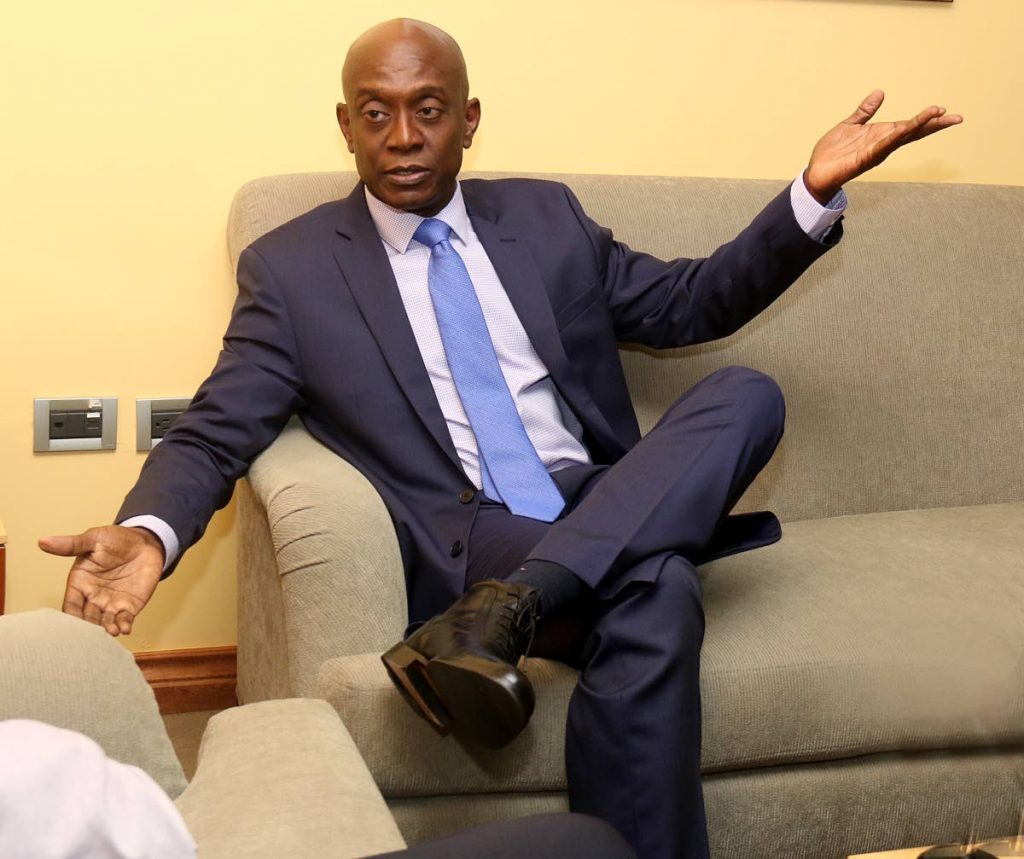Forex reserves under pressure

CARLA BRIDGLAL
Thef upcoming Christmas and Carnival seasons will likely put an additional strain on the country’s foreign exchange reserves, Central Bank, governor Alvin Hilaire, has suggested.
“We’ll see a further decline in foreign reserves this year because of the decline (in energy revenues) and because of the seasonal Christmas time, in the next two months there will be a further slipping of reserves,” Hilaire said.
Hilaire, who presented the Monetary Policy Report for November on Thursday at the Central Bank in Port of Spain, said the country currently has 9.8 months’ import cover, or just over US$8 billion, although he noted that over the last year, the Bank’s foreign reserves dropped by about US$1 billion. The Bank has been injecting about US$150 million a month to help manage demand.
The country’s foreign reserves were still “high and comfortable,” he said, but over the next period the state of those reserves would depend on what happens with energy prices, production and demand, but there would be a slight short run slip.
The country’s external debt, he added was “quite small,” or only 14 percent of GDP, and monthly debt service payments were manageable so there was no major impact to reserves.
Hilaire added that suggestions of a possible black market for US currency was “not unusual but not extreme,” acknowledging that the country did, nevertheless, need to sort out the foreign exchange constraints. “We need a combination of policies that creates balance, then these things (black market pricing) naturally tend to dissipate. These imbalances are not independent of the (forex) situation but created because of them, so our focus should be to address the nature of the imbalance,” he said.
The impact of inflation in the context of any rate adjustment, he said, was a concern. He added that the Bank and the Ministry of Finance met regularly—as recently as yesterday—to determine how the foreign exchange situation should be handled.
Asked if the decision to hold off on adjusting the exchange rate downward was politically motivated, Hilaire said he was not a politician so he could not answer.
“The big questions on the exchange rate are determined by the government and the Central Bank and then the day-to-day operations might then be worked out by the Bank,” he said.
Asked to comment on the Bank’s stance on maintaining a “neutral” monetary policy in light of the International Monetary Fund’s suggestions that TT needs to devalue its dollar to improve competitiveness and help restore balance of payments equilibrium, Hilaire said the IMF is “in accord with what we are doing.”
“The Central Bank faces a dilemma where the economy is undergoing strain and there may be an argument to lower interest rates, but when you have foreign interests rates going up as well, the IMF supports the CBTT’s stance,” he said.

Comments
"Forex reserves under pressure"